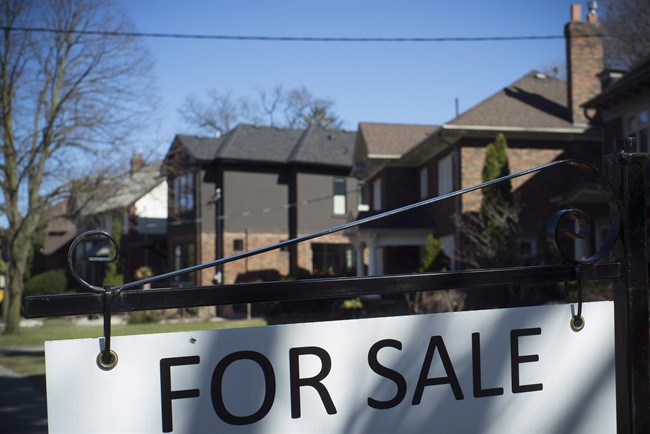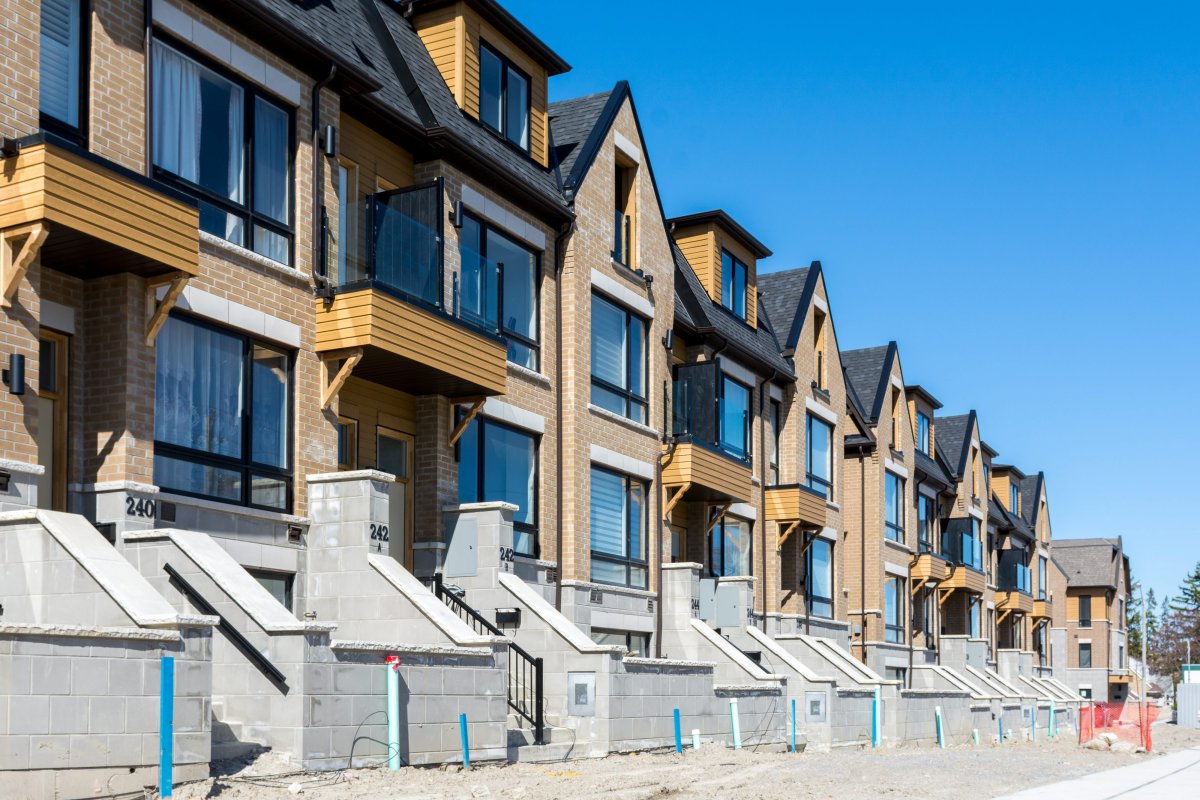It’s often said that the third time’s the charm.

And for Canadian home prices, a third consecutive fourth-place ranking out of 55 countries suggests the Great White North’s real estate has settled comfortably among the world’s most expensive housing markets.
Coverage of housing issues on Globalnews.ca:
The rankings were compiled by Knight Frank, a global real estate consultancy based in London.
Its Global House Price Index ranks housing markets for 55 nations based on annual price growth , using data from national statistic offices or central banks in each country.
Canada’s housing market ranked fourth overall in the first quarter this year after average home prices grew by 13.5 per cent.
In fact, the Great White North has seen steadily increasing annual price growth in every quarter since 2015, as the following graph shows.
The latest report showed that Canada was one of 11 countries to see double-digit price growth in the year up to March 2017; it trailed only Iceland (1st), Hong Kong (2nd) and New Zealand (3rd).
The Canadian Real Estate Association’s (CREA) report for April also showed Canadian home prices growing by double digits year-over-year.
The MLS Home Price Index grew by 19.8 per cent in the year leading up to April, while the national average sale price grew by 10.4 per cent in the same time period.
READ MORE: Toronto-area home sales drop in May after province introduces foreign buyers’ tax
Sales, however, were a different story.
Actual sales activity was down by 7.5 per cent in April from 2016, but those numbers weren’t seasonally adjusted; declines were noted in almost 70 per cent of local housing markets.
The drop in sales was most apparent in B.C.’s Lower Mainland, which includes Vancouver, though the decline was also credited to the Greater Toronto Area (GTA), which had “faded activity compared to record levels set in April last year.”

Knight Frank’s statistics also provided one of the last looks at the state of Canadian housing before Ontario implemented its Fair Housing Plan, which included a non-resident tax, in an effort to cool off the GTA’s hot housing market.
The measures resulted in what TD Economics called a “soft landing” for Toronto real estate, with a 30 per cent drop in sales from their peak earlier this year.
The declines were largely noticed in detached homes, where sales fell 26 per cent year-over-year, and in semi-detached homes, where they fell by 22 per cent.
Those declines were also consistent with what happened in Vancouver after B.C. implemented a foreign buyers’ tax for the city and its surrounding areas last year.
The bank’s economists project that average prices in the GTA will see a four per cent decline next year, while Vancouver-area prices are expected to drop by three per cent this year.
- Train goes up in flames while rolling through London, Ont. Here’s what we know
- Budget 2024 failed to spark ‘political reboot’ for Liberals, polling suggests
- Wrong remains sent to ‘exhausted’ Canadian family after death on Cuba vacation
- Peel police chief met Sri Lankan officer a court says ‘participated’ in torture









Comments